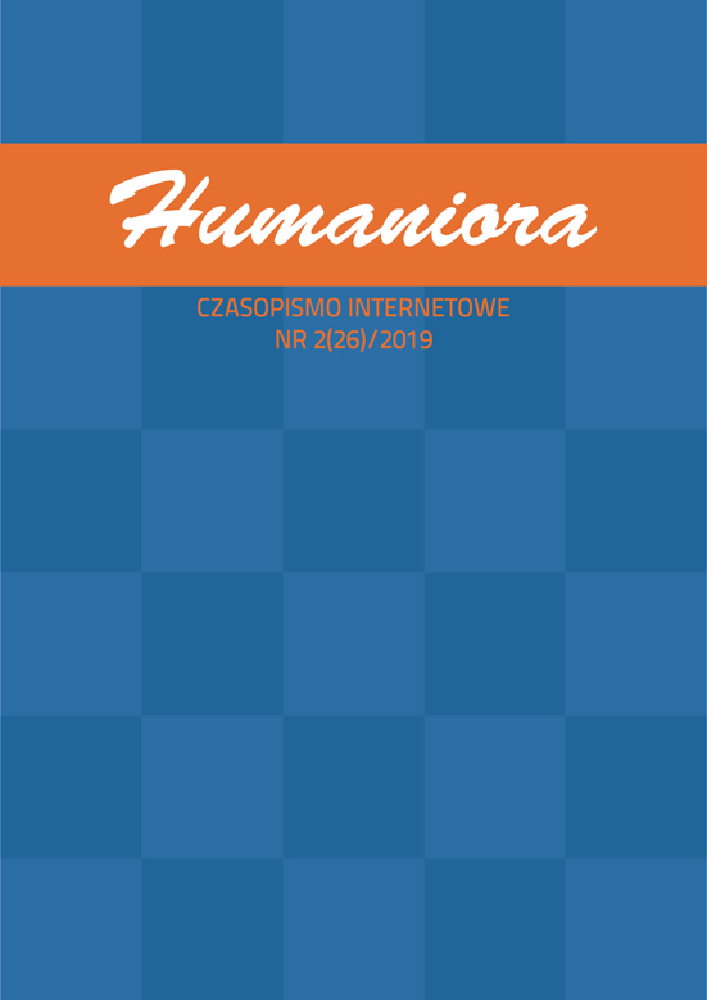Abstract
Writing about the relationship between Martin Heidegger’s philosophy and Marxist philosophy, Jean Beaufret states (after Hegel) that it was in Descartes philospohy that the very essence of truth was resolved in a new way. I interpret it as follows: it is not statement mainly about the fact that its content – what is considered to be true – has changed. This has been changing many times, depending on time and place. What has changed is the truth itself; what (and why) is considered true; by what means truth spreads and reproduces. So I am less interested in what the Truth is - in itself, in its essence (especially that it seems to be historically changeable) - or (making distinction) what are those different truths (modern or not; that what is currently true or considered as such). I am going to focus here on this very resolution: how Truth was (re-)constructed, how one discovers/constructs truths and what conditions they must fulfill according to given Truth. It is a two-part text, and this is first part.
References
Beaufret J., „Dialog z marksizmem” i „Pytanie o technikę”, „Aletheia” 1 (4)/1990.
Bray F., Chinese Technology, w: J. K. B. Olsen, S. A. Pedersen, V. F. Hendricks (red.), A Companion to the Philosophy of Technology, Wiley-Blackwell, Singapore 2009.
Chwałczyk F., Miary jako modele pośredniczące między gospodarką a ekonomią, w: T. Kwarciński, A. Wincewicz-Price (red.), Metaekonomia, t. II: Zagadnienia z filozofii makroekonomii, Copernicus Center Press 2019, https://drive.google.com/file/d/1LFTioOV22MHqTdOzHU8BwFBZ_ME6RoXz/view [23.02.2019].
Heidegger M., Pytanie o technikę, w: idem, Technika i zwrot, Baran i Suszczyński, Kraków 2002, s. 7.
http://plato.stanford.edu/entries/chinese-room/ [23.03.2019].
https://en.wikipedia.org/wiki/History_of_science_and_technology_in_China i https://en.wikipedia.org/wiki/List_of_Chinese_inventions [23.02.2019].
Kmita J., Późny wnuk filozofii: wprowadzenie do kulturoznawstwa, Bogucki Wydawnictwo Naukowe, Poznań 2007.
Kuhn T. S., Struktura rewolucji naukowych, PWN, Warszawa 1968.
Kula W., Miary i ludzie, Książka i Wiedza, Warszawa 2004.
Lier H. Van, Nowy wiek, PIW, Warszawa 1970.
Mumford L., Mit maszyny, t. 1, Wydawnictwo Naukowe PWN, Warszawa 2012.
Mumford L., Mit maszyny, t. 2: Pentagon władzy, Wydawnictwo Naukowe PWN, Warszawa 2014.
Mumford L., Technika a cywilizacja. Historia rozwoju maszyny i jej wpływ na cywilizację, PWN, Warszawa 1966.
Nisbett R. E., Geografia myślenia. Dlaczego ludzie Wschodu i Zachodu myślą inaczej?, Smak Słowa, Sopot 2015.
O’Brien P. K., The Needham Question Updated: A Historiographical Survey and Elaboration, w: I. Inkster (red.), Technology in China, „History of Technology” t. 29, 2009.
Serres M., Lucretius: Science & Religion, w: idem, Hermes: Literature, Science, Philosophy, The Johns Hopkins University Press, Londyn 1982.
Serres M., Mathematics & Philosophy: What Thales Saw…, w: idem, Hermes: Literature, Science, Philosophy, The Johns Hopkins University Press, Londyn 1982.
License
Czasopismo oraz wszystkie zamieszczone w nim materiały są powszechnie dostępne i mogą być wykorzystywane do celów naukowych, edukacyjnych, poznawczych i niekomercyjnych bez konieczności uzyskiwania każdorazowej zgody autorów i redakcji. Nadesłanie artykułu do publikacji traktowane jest jako zgoda autora na udostępnienie swojej pracy i informacji w niej zawartych do powyżej wymienionych celów. W takich przypadkach należy jedynie wskazać źródło, z którego zaczerpnięte zostały informacje. Pobieranie opłat za dostęp do materiałów zawartych w czasopiśmie lub ograniczanie do niego dostępu jest zabronione.
Przesyłane do redakcji teksty muszą stanowić oryginalne prace, uprzednio nigdzie niepublikowane ani nie przedkładane innym redakcjom lub wydawcom. Autorzy nadsyłanych artykułów ponoszą odpowiedzialność za uzyskanie zezwoleń na publikowanie materiałów, do których prawa autorskie są w posiadaniu osób trzecich. Publikacja materiałów chronionych prawem autorskim jest możliwa pod warunkiem uprzedniego dostarczenia przez autora do redakcji pisemnej zgody właściciela praw autorskich.





